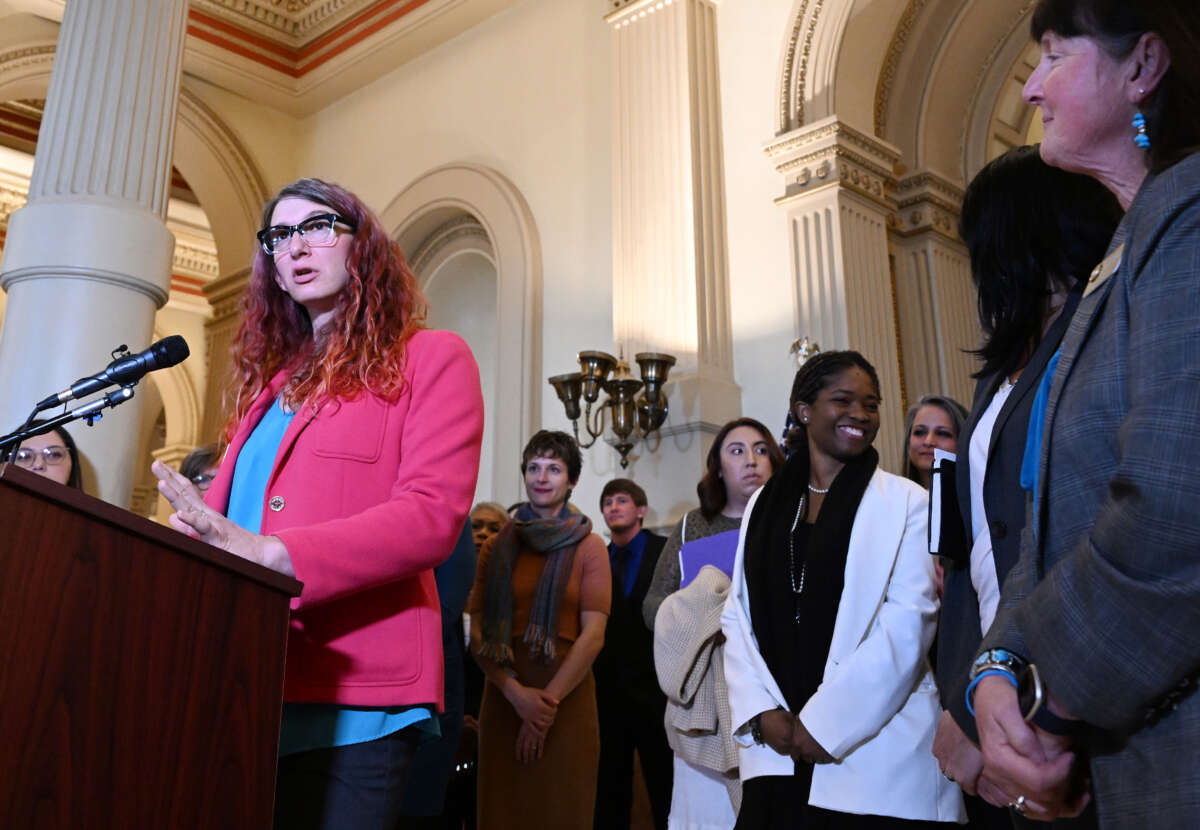Democratic lawmakers in Colorado just unveiled the Safe Access to Protected Health Care Package, which would legally enshrine abortion access and gender affirming care in the state. These bills, if passed, would expand Coloradans’ access to reproductive, abortion, and gender-affirming health care and protect out-of-state patients from investigations and prosecutions.
In April 2022, Colorado lawmakers, led by Sen. Julie Gonzales (D), passed the Reproductive Health Equity Act, which legally protected Coloradans’ right to abortion. After the reversal of Roe in June, Governor Jared Polis also signed an executive order that prohibited state agencies from cooperating with out-of-state prosecutions relating to abortion care that occurred in the state.
Voters enthusiastically endorsed these policies in the 2022 midterms by solidifying democratic majorities in the Senate and House. Senator Gonzales , who won re-election in 2022, is currently Majority Whip and the main sponsor of the Safe Access to Protected Health Care Package’s ‘shield law, which will protect out-of-state patients from prosecution.
“Colorado voters turned out on abortion rights for the midterms,” said ProgressNow Executive Director Sara Lu Loflin. “It was their top issue and they gave our policymakers a clear mandate to strengthen abortion access in this state.”
These protections have made Colorado a refuge for abortion access in a part of the country where surrounding states like Wyoming, Arizona, Nebraska, and Utah have enacted abortion restrictions and bans. In 2022, Colorado abortion providers reported an increased demand, nearly doubled from the previous year, for abortion care from out-of-state patients.
The Safe Access to Protected Health Care Package is also a response to the concerted legislative attack on transgender rights occurring across the country. Neighboring states such as Wyoming, Arizona, Nebraska, and Utah have advanced anti-trans legislation targeting transgender youth and drag performers.
“While other states are trying to limit or completely dismantle our rights as trans people — we’re enshrining them into state law,” said State Rep. Brianna Titone (D), Colorado’s first openly transgender representative.
Representative Titone recently made news for calling out her Republican colleagues for making demeaning and derogatory comments towards her and other transgender people during a recent debate concerning a potential ratification of the state’s Equal Rights Amendment.
“Whether you believe me, or people like me, should exist — I do exist.” Titone stated. “And I am your equal in this chamber. I accomplished the same thing you did to be here, and I proudly represent all of my constituents in the course of my work in this chamber.”
On March 8, Minnesota Governor Tim Walz was celebrated by transgender advocates for taking executive action and making Minnesota a trans refugee state. The signed executive order will not only secure Minnesotan youth’s access to gender-affirming care, but will also protect families who travel from out-of-state to access healthcare that may be criminalized where they are from. Colorado LGBTQ advocates have applauded Colorado legislators for following Minnesota’s example and moving to protect transgender youth.
The legislative package has also been commended by groups including the Colorado Organization for Latina Opportunity (COLOR), COBALT, New Era Colorado, and Planned Parenthood of the Rocky Mountains, who partnered with lawmakers to introduce the legislative package.
“These bills were created together with providers, patients, and community members to ensure that we’re addressing the issues most critical to our communities,” said Dusti Gurule, president of COLOR. “This package represents another step forward to ensure the needs of our communities are being addressed.”
Join us in defending the truth before it’s too late
The future of independent journalism is uncertain, and the consequences of losing it are too grave to ignore. To ensure Truthout remains safe, strong, and free, we need to raise $41,000 in the next 5 days. Every dollar raised goes directly toward the costs of producing news you can trust.
Please give what you can — because by supporting us with a tax-deductible donation, you’re not just preserving a source of news, you’re helping to safeguard what’s left of our democracy.
